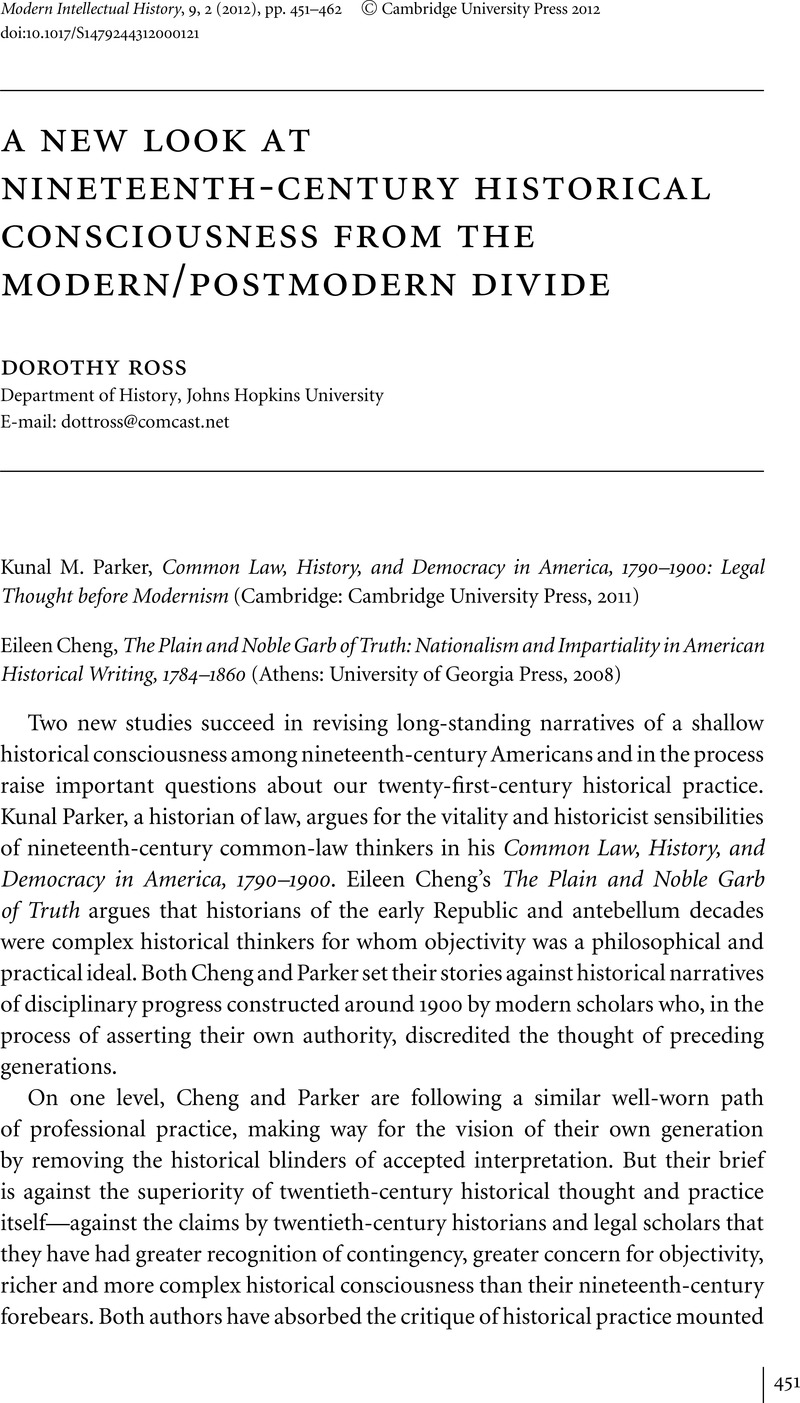No CrossRef data available.
Published online by Cambridge University Press: 10 July 2012

1 Parker, at 6, cites Roberts, David D., Nothing but History: Reconstruction and Extremity after Metaphysics (Berkeley, 1995)Google Scholar. See also Krieger, Leonard, Time's Reasons: Philosophers of History Old and New (Chicago, 1989)CrossRefGoogle Scholar; Krieger names the critical reconstruction of history that developed from the time of the Renaissance “historism” and reserves the term “historicism” for the modernist antifoundational “historicization of all reality” at the turn of the century (107). “Unremitting flux . . .” is from Krieger, Time's Reasons.
2 Cheng links her revisionism in part to Novick, Peter, That Noble Dream: The “Objectivity Question” and the American Historical Profession (Cambridge, 1988)CrossRefGoogle Scholar; and Fitzpatrick, Ellen, History's Memory: Writing America's Past 1880–1980 (Cambridge, MA, 2002)CrossRefGoogle Scholar.
3 Higham, John, History: Professional Scholarship in America, updated edn (Baltimore, 1989; first published 1965)Google Scholar.
4 Cohen, Lester H., The Revolutionary Histories: Contemporary Narratives of the American Revolution (Ithaca, 1980)Google Scholar; Levin, David, History as Romantic Art: Bancroft, Prescott, Motley, and Parkman (Stanford, 1959)Google Scholar.
5 Ross, Dorothy, “Historical Consciousness in Nineteenth-Century America,” American Historical Review 89 (1984), 909–28CrossRefGoogle Scholar.
6 Cf. Horwitz, Morton J., The Transformation of American Law 1780–1860 (Cambridge, MA, 1977)Google Scholar; Newmeyer, R. Kent, Supreme Court Justice Joseph Story: Statesman of the Old Republic (Chapel Hill, 1985)Google Scholar.
7 In this regard, Parker builds particularly on Chandler, James, England in 1819: The Politics of Literary Culture and the Case of Romantic Historicism (Chicago, 1998)Google Scholar.
8 See Spiegel, Gabrielle M., “The Task of the Historian,” American Historical Review 114 (2009), 1–15CrossRefGoogle Scholar; Spiegel, Gabrielle, “Review of Medievalisms in the Postcolonial World,” Rethinking History 15 (2011), 617–25CrossRefGoogle Scholar.
9 Parker cites Chakrabarty, Dipesh, Provincializing Europe: Postcolonial Thought and Historical Difference (Princeton, 2000)Google Scholar.